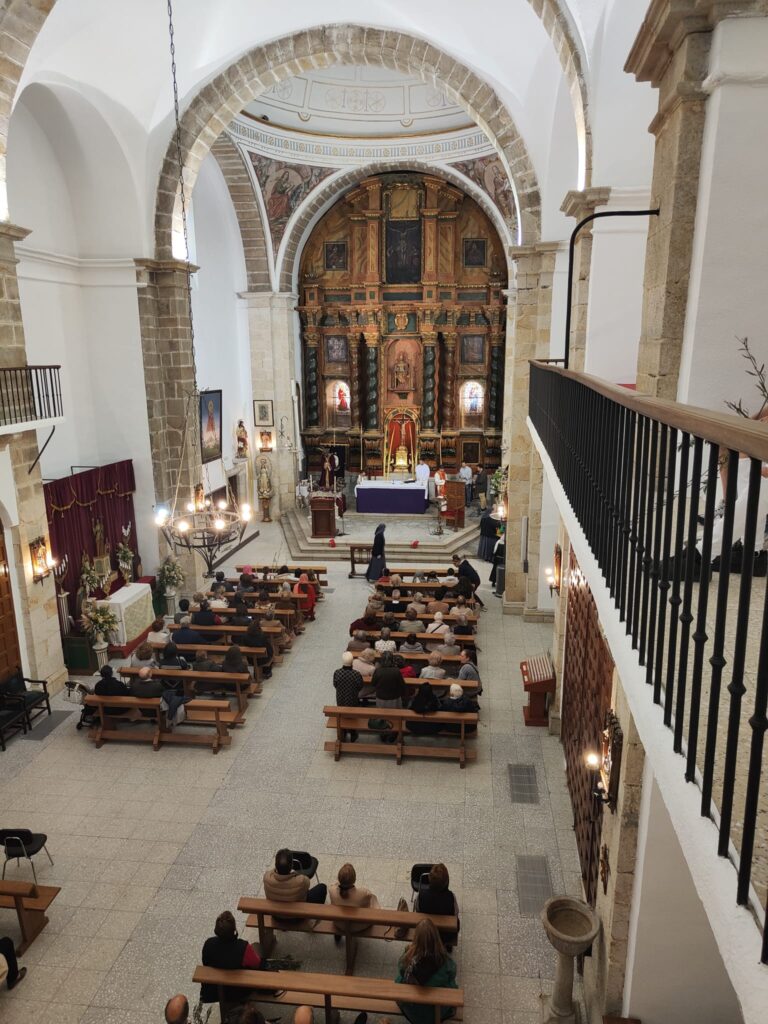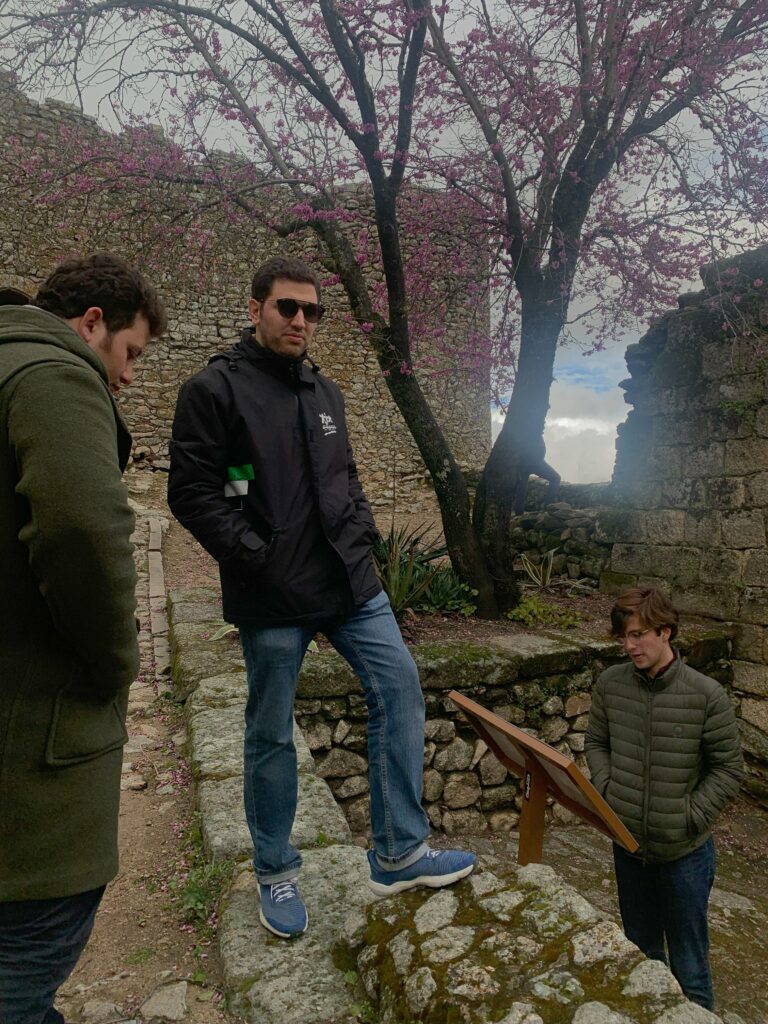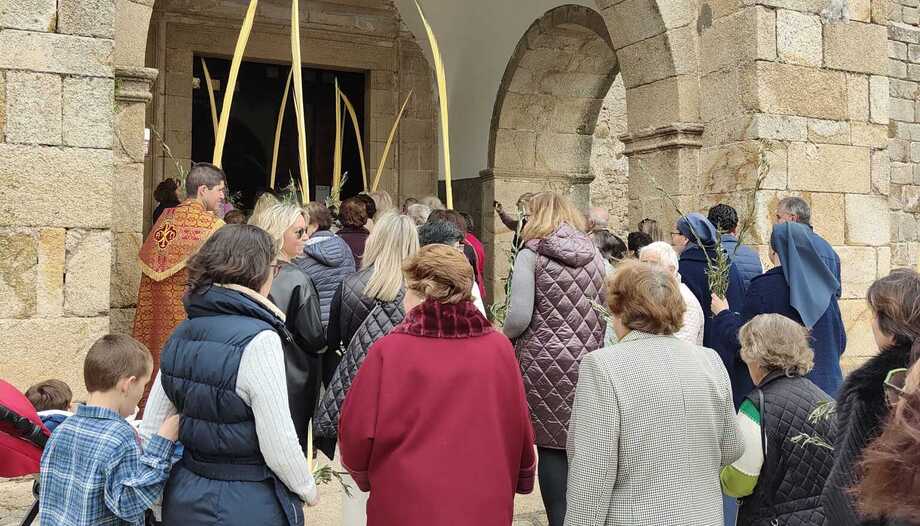The "emptied Spain" is a concern for many, including the Church. It is not surprising, therefore, that during the Easter A group of Catholics decided to go on a mission trip to a rural town in Extremadura to help in pastoral activities. Carlos Piñero, vicar for economic affairs and pastor of two villages, Valdefuentes and Montánchez, in the diocese of Coria-Cáceres, received for a week some young people from the Regnum Christi.
Don Carlos explains that Valdefuentes and Montánchez "are two towns that are about 50 kilometers from Cáceres and that are experiencing a situation of a hollowed-out Spain. Little by little the young people are leaving, the remaining inhabitants are elderly and the mortality rate is high". In addition, "the young people who do stay lack the reference of other young people who also live the faith".
The case of Montánchez is a little more special, since it is "a town with a deep-rooted religious tradition, since the presence of religious communities has been noticeable for years". However, the parish priest emphasizes that it still lacks "the reference of a more committed apostolate".
The spirit of the missions
For this reason, when the group of missionaries organized by Idris Villalba arrived in Extremadura, don Carlos asked them "to help the people to celebrate Holy Week. He asked them to get involved in the different activities of the village groups, so that during these celebrations they could feel even more proud".
At the same time, the vicar and parish priest wanted, on the one hand, that the group of young people of the city would show that "one can enjoy Holy Week by getting involved with the Church". On the other hand, he also wanted "the missionaries to get to know the people for whom Jesus has a preference, such as the people who are going through an illness, a bereavement, or who are alone".
Faced with these requests, the missionary Idris Villalba explains that the idea of the group "was to make themselves available to whatever God wanted to raise up through this project". However, what they found when they arrived was something different from what they expected, "but it was very fruitful".
Idris assures that the "empty Spain" to which they went "is not so empty". They found a community to accompany "in their day to day life, from the moment of prayer in the morning with some nuns to visiting people to give them communion and personally assisting the inhabitants in difficult situations". They also helped the parish priest during liturgical celebrations.
The missionary summarizes his work in the diocese by saying: "We witnessed in a normal Holy Week in the towns where we were that today there are people who believe that it is worthwhile to give several days of their lives in service to others".
Missions and recollection

Holy Week is a special liturgical time of recollection and contemplation. This idea can clash with missionary activity, which consists of "going outward". Idris explains that this entails "the risk of remaining superficial". In fact, when he went with his group to these villages of Extremadura, he thought "that he was going to spend a Holy Week of activity and hustle and bustle, in the image of Martha in the house of Bethany". But the opposite happened.
"Even though we spent a lot of time with the people we were with, many of those moments were spent with Christ himself." Idris points out that "in the neighbor is Christ. In serving, you enter into the mystery of a God who gives himself." This, combined with prayer and Liturgy, made "everything was perfectly coordinated to make this double experience of 'doing much' and 'being much'".
Identifying with Christ during Holy Week
This dedication of the missionaries to the villagers has had an impact on Idris: "The more you give yourself, the more you receive, and then you realize that behind every face there is a person saved by Christ". The young Catholic assures that "you meet Christ in people. Moreover, in this day-to-day life God performs small daily miracles that, if you are attentive, you can see, which also helps you to be grateful and to meet Him".
Idris discovered during those days of Holy Week "the missionary work to which we Christians of the 21st century are called. Something that, curiously, "many people who already serve the Church know, because they are usually people who have suffered a lot but who have met Christ at some point and have left everything for the hidden treasure they have found, in the manner of the Gospel parable". Here, Idris thinks, is hidden the secret of "that 'field hospital' of which Pope Francis speaks".
The impact of missions

Once they have returned home, the missionaries can take stock of their activity in the village. But, as Idris says, "it is impossible to quantify the consequences of our actions, perhaps they can be seen with the passage of time. We don't know who we have touched, and we don't know what we have stirred or stirred up in the community".
Carlos Piñero, who knows his parishioners well, affirms that "there has been a very pleasant impact in a very short time. Thanks to the presence of the young people of Regnum Christi "the people have seen a disinterested and capable attitude, which has helped to revitalize the faith".
These young people who came from the city, concludes the parish priest, "were not people who came just to join in, but who came and contributed what they could. They have given an excellent testimony of the attitude that we ourselves want to have".








